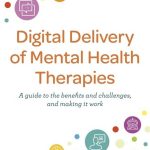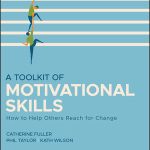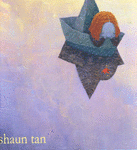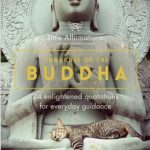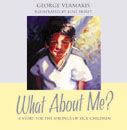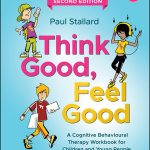Advances in Online Therapy is the definitive presentation on online psychological intervention, which takes research and experiences of online therapy a step further by applying them to therapy in a post-pandemic world.
This book addresses most of the main approaches and schools of individual, couple and family psychotherapy that are prevalent in the therapeutic field nowadays and explores how each of them adjust to online therapy. The reader will explore the main challenges and obstacles unique for each approach and how leading experts of those approaches overcome these challenges. The book also offers a relatively unique collection of the most practiced therapeutic approaches. In addition, the reader will explore specific issues that anyone who meets clients online should be aware of, like who is suitable for online counseling and who should be excluded, how to overcome resistance to online meetings, how to create online therapeutic alliance, enhancing online presence, and more. This book develops further the ideas and areas explored in the authors’ previous book, Theory and Practice of Online Therapy.
Advances in Online Therapy aims to help mental health professionals and graduate students responsibly explore and expand their own ‘online comfort zone’.
Contents:
- Introduction
- Haim Weinberg, Arnon Rolnick, and Adam Leighton
- Section One: Theoretical Aspects of Online Therapy
- 1. Being Present and Together While Apart: Therapeutic Presence in Teletherapy – Shari Geller
- 2. Finding Closeness while Socially Distant: Clinical Considerations for the Therapeutic Frame and Process in Teletherapy – Danielle Magaldi and Leora Trub
- 3. Reflections on Empathic Presence in Online Therapeutic Relations – Lou Agosta
- 4. “The untouched – touched”: Intimacy and Intersubjectivity Online – Athena Marouda – Chatjoulis and Evdokia Ntali
- 5. Me and My Otherness. Or: Who is the Other on Screen who Looks Exactly Like Me? – Dr. Vered Bar
- 6. Zooming in Zoom: Mental-Body-Brain perspectives on Online psychotherapy sessions – Hadas Mor Ofek
- Section 2: Individual Therapies – Specific Modalities
- 7. Telehealth Delivery of Dialectical Behavior Therapy – Chelsey R. Wilks and Kyrill Gurtovenko
- 8. Schema Therapy in the Online Setting – from Challenges to Opportunities – Hagara Feldman
- 9. Implementing the Unified Protocol Online: Adaptations and Considerations – Andrew Curreri, Molly Fitzpatrick, David Barlow, and Elizabeth Eustis
- 10. Remote Art Therapy: Engaging in a Shared Experience – Galit Mor
- 11. Zooming in on Experiential Dynamic Therapies – Joop Meijers
- 12. Online-IPT- not necessarily a second best – Brunstein Klomek Anat, Aanaelle Benistri
- 13. Online EMDR Therapy in the COVID-19 Era and Beyond – Udi Oren and Isabelle Meignant
- 14. Getting a Little Closer in Every Session: The unique contribution of remote Biofeedback to psychotherapy – Yossi Ehrenreich, Arnon Rolnick, and Adam Leighton
- 15. Interactive Hypnosis and Hypnotic Psychotherapy Online – Joseph Meyerson
- Section 3: Couples & Families
- 16. An Introduction to Couple and Family Therapy – Arnon Rolnick, Adam Leighton, and Haim Weinberg
- 17. Emotionally Focused Couple Therapy Online: Handholding from a Distance – Lorrie Brubacher and Ting Liu
- 18. Adapting Emotion Focused Therapies for Online Delivery – Mirisse Foroughe and Prakash Thambipillai
- 19. Gottman Method: Assessment and Treatment in the Age of Online Therapy – Shoshana Hellman, Don Cole, and Arnon Rolnick
- 20. Healing Through the Screen: Using Imago Relationship Therapy Online – Kalanit Ben-Ari
- 21. Online Contemporary Couples Gestalt Therapy “Two Become One” – and Then There are None! – Rita F. Resnick and Robert W. Resnick
- Section 4: Specific Populations
- 22. Online Suicide-Focused Treatment: The Telehealth Use of CAMS – Mary V. Tipton, Josh Brenner, Jennifer Crumlish, Melinda Moore and David A. Jobes
- 23. Reactivating Playfulness Online for PTSD treatment -Mooli Lahad, Miki Doron, and Dori Rubinstein
- 24. Adapting Focused Acceptance and Commitment Therapy for Individuals with Childhood-Onset Medical and Developmental Disabilities Kristen Holderle and Jeffrey Iler
- 25. Diving into the World of Online Play Therapy – Brian Keating
- Epilogue
- Haim Weinberg, Arnon Rolnick, and Adam Leighton
- Appendix
Author Bio:
Haim Weinberg, PhD, is a clinical psychologist, group analyst, and certified group psychotherapist in California, USA.
Arnon Rolnick, PhD, is a licensed clinical psychologist with special interest in the usage of technology in psychotherapy in Tel-Aviv, Israel.
Adam Leighton is a counsellor, group facilitator, wilderness therapy facilitator, and lecturer at Ruppin Academic Center, Israel.
Review:
“This is by far the best resource to access the accumulated therapeutic experience of remote working which has, by now, become part of all therapists’ routine practice. Every therapist, regardless of orientation, should be required carefully to study the brilliant advice from the collection of master therapists the editors assembled as these clinicians adapted their practice to online working. Packed full of immediately applicable practical wisdom, this immediate classic gives us hope that with creativity and flexibility, psychological therapists are able to modify their technique and generate remarkable improvement in their clients whatever limitations are imposed on their communication medium. Undoubtedly, the most helpful book of 2022” – Professor Peter Fonagy, OBE, FMedSci, FAcSS, FBA, PhD. Head of the Division of Psychology and Language Sciences at UCL; Chief Executive of the Anna Freud National Centre for Children and Families, London.



